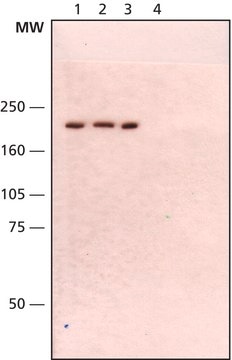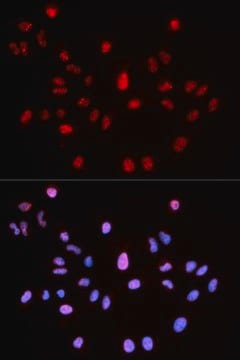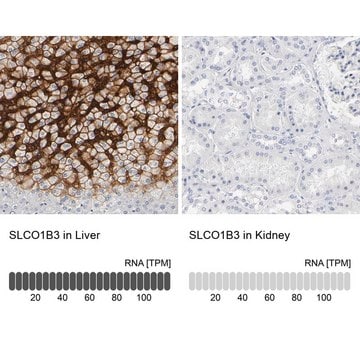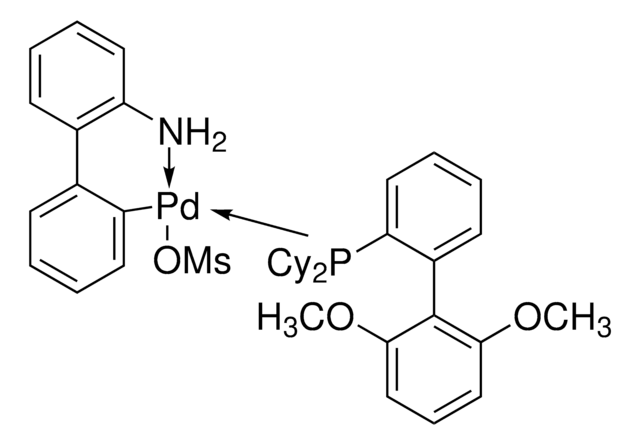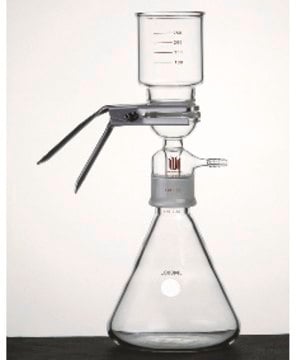MABD34
Anti-Werner′s syndrome helicase (WRN) Antibody, clone 20A11.1
clone 20A11.1, from mouse
Synonym(s):
Werner syndrome ATP-dependent helicase, DNA helicase, RecQ-like type 3, RecQ3, Exonuclease WRN, RecQ protein-like 2
About This Item
Recommended Products
biological source
mouse
Quality Level
antibody form
purified antibody
antibody product type
primary antibodies
clone
20A11.1, monoclonal
species reactivity
human
technique(s)
western blot: suitable
isotype
IgG1κ
NCBI accession no.
UniProt accession no.
shipped in
wet ice
target post-translational modification
unmodified
Gene Information
human ... WRN(7486)
General description
Immunogen
Application
Epigenetics & Nuclear Function
Chromatin Biology
Quality
Western Blot Analysis: A 1:2,000 dilution of this antibody detected Werner′s syndrome helicase (WRN) in 10 µg of HEK293 cell lysate.
Target description
Physical form
Storage and Stability
Analysis Note
HEK293 cell lysate
Disclaimer
Not finding the right product?
Try our Product Selector Tool.
Storage Class Code
12 - Non Combustible Liquids
WGK
WGK 1
Flash Point(F)
Not applicable
Flash Point(C)
Not applicable
Certificates of Analysis (COA)
Search for Certificates of Analysis (COA) by entering the products Lot/Batch Number. Lot and Batch Numbers can be found on a product’s label following the words ‘Lot’ or ‘Batch’.
Already Own This Product?
Find documentation for the products that you have recently purchased in the Document Library.
Our team of scientists has experience in all areas of research including Life Science, Material Science, Chemical Synthesis, Chromatography, Analytical and many others.
Contact Technical Service